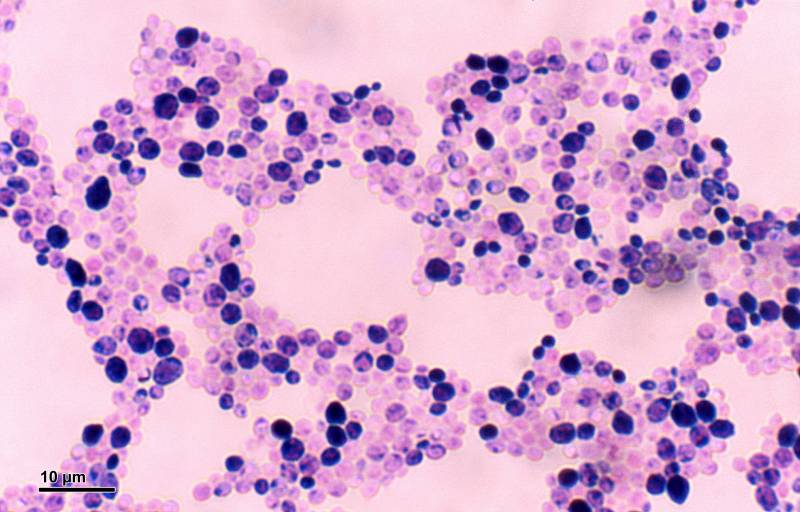Autoimmunity is a disease in which the immune system mistakenly attacks the body's own tissues. This can lead to a wide variety of symptoms, depending on which tissues are affected. Unfortunately, autoimmune diseases are still relatively mysterious, and scientists are still working to understand them better. In this article, we will discuss autoimmunity in more detail, including its causes and treatment options.
Autoimmune diseases can be difficult to diagnose because their symptoms can mimic those of other conditions. This is one of the reasons why autoimmune diseases are often referred to as "invisible illnesses." If you think you might have an autoimmune disease, it is important to see a doctor who specializes in this area. They will be able to order the appropriate tests and make a diagnosis.
There is no one-size-fits-all treatment for autoimmune diseases. Treatment plans will vary depending on the individual and the specific disease. However, there are some general principles that can be applied to most autoimmune conditions. For example, many people with autoimmunity will need to take immunosuppressive drugs to control their symptoms. In some cases, surgery may also be necessary.

If you or someone you know has an autoimmune disease, it is important to remember that you are not alone. There are many resources available to help you cope with your condition. With the right treatment and support, it is possible to manage your autoimmune disease and live a full and healthy life.
Do you have any questions about autoimmunity? Leave a comment below and let us know. We would love to hear from you!
If you are looking for more information on autoimmune diseases, we recommend checking out the following resources:
- The Autoimmune Disease Site: This website provides general information on autoimmunity, as well as a directory of autoimmune diseases.
- The National Institutes of Health: The NIH has a wealth of resources on autoimmunity, including research articles, fact sheets, and contact information for medical professionals.
- The American Autoimmune Related Diseases Association: AARDA is a national nonprofit organization dedicated to raising awareness of autoimmunity and providing support to those affected by these diseases.
The use of Nanocurcumin in autoimmune diseases.
Nanocurcumin is a novel formulation of curcumin, the active ingredient in the spice turmeric. Curcumin has been used for centuries in traditional medicine to treat a variety of conditions, including inflammation and autoimmune diseases. Nanocurcumin is more bioavailable than regular curcumin, meaning that it is better able to reach the target tissues and provide therapeutic benefits.
A number of studies have shown that nanocurcumin is effective in treating autoimmune diseases. In one study, nanocurcumin was found to be as effective as the immunosuppressive drug methotrexate in treating rheumatoid arthritis. Another study showed that nanocurcumin was able to significantly reduce symptoms in people with autoimmune hepatitis.
If you are interested in trying nanocurcumin for your autoimmune disease, talk to your doctor about whether it is right for you. Nanocurcumin is generally considered safe and well-tolerated, but as with any treatment, there is always a risk of side effects. Be sure to let your doctor know if you are taking any other medications or supplements, as nanocurcumin may interact with these substances.
Nanoformulated Curcumin as a Potential Treatment for Autoimmune Diseases
Autoimmune diseases are a group of disorders in which the body's immune system mistakenly attacks healthy tissue. These conditions can affect any part of the body and can cause a wide range of symptoms. Because autoimmune diseases can be difficult to diagnose, they often go unrecognized and untreated for many years.
There is currently no cure for autoimmune diseases, but there are treatments that can help to control the symptoms. In some cases, such as with rheumatoid arthritis, immunosuppressive drugs may be used to prevent the immune system from attacking the joints. Surgery may also be necessary to remove damaged tissue or organs.
Recently, there has been a lot of interest in the use of nanocurcumin, a novel formulation of curcumin, for the treatment of autoimmune diseases. Curcumin is the active ingredient in turmeric, a spice that has been used for centuries in traditional medicine to treat inflammation and other conditions. Nanocurcumin is more bioavailable than regular curcumin, meaning that it is better able to reach the target tissues and provide therapeutic benefits.
A number of studies have shown that nanocurcumin is effective in treating autoimmune diseases. In one study, nanocurcumin was found to be as effective as the immunosuppressive drug methotrexate in treating rheumatoid arthritis. Another study showed that nanocurcumin was able to significantly reduce symptoms in people with autoimmune hepatitis.
If you are interested in trying nanocurcumin for your autoimmune disease, talk to your doctor about whether it is right for you. Nanocurcumin is generally considered safe and well-tolerated, but as with any treatment, there is always a risk of side effects. Be sure to let your doctor know if you are taking any other medications or supplements, as nanocurcumin may interact with these substances.
Nanoformulated Curcumin as a Potential Treatment for Autoimmune Diseases.



